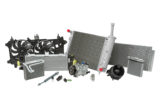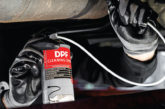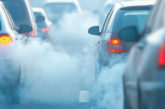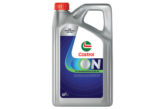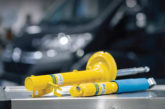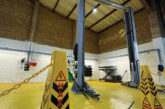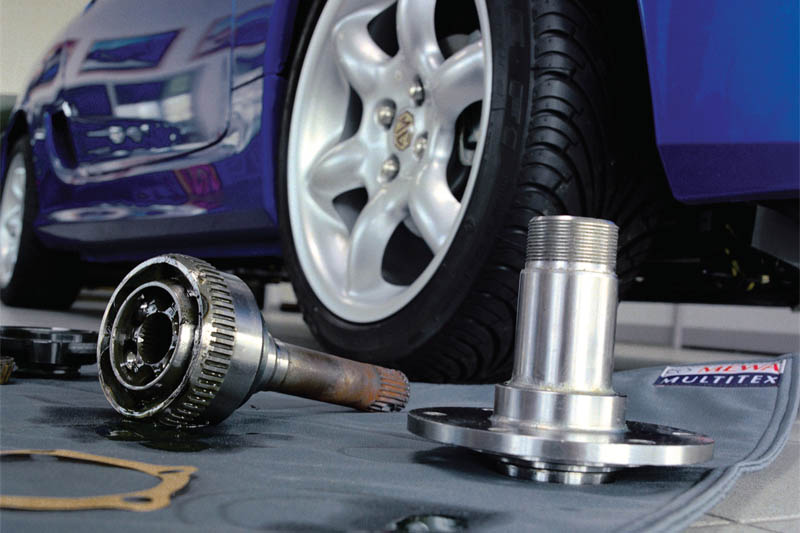
Spillages happen every day in garages and cleaning them up can be a costly and time-consuming exercise. Günes Yenen, UK Country Manager of MEWA, sheds light on these difficulties and offers a solution.
Engine oil, hydraulic fluids, antifreeze and grease; all of these fluids are essential to the smooth running of motor vehicles and, as such, they are prevalent in garages. It is no surprise then that the spillage of these fluids is a common occurrence. These spillages are often prevented with drip trays and are cleaned up with trusty blue paper towel, but is there a better approach? After all, spillages create a number of significant problems for the owners and managers of garages.
Safety first
Spillages can present a potential hazard to employees. According to the UK’s Health and Safety Executive (HSE), slips and trips cause approximately 20% of all injuries in the motor vehicle repair (MVR) industry. These accidents can be serious, often resulting in broken or dislocated bones, and long absences from work. As such, it is essential that owners and managers of workshops and garages prevent spillages of oil and grease, provide materials for tackling spills, and ensure that they are cleaned-up immediately.
Costly consumables
Thought also needs to be given to the consumables used to clean-up spillages. Absorbent pads and granules can be used for large spillages and, for minor spillages, it makes economic sense for garages to use rags. Unlike tissue and spill kits, rags can often be cleaned and re-used for a time. They must never be put straight into a washing machine, however. Doing so could not only damage the machine’s motor, but the fumes may escape and cause a fire, particularly as the washing machine’s motor heats up. Instead, rags with minimal amounts of oil can be cleaned by soaking them in a large bucket of water mixed with a non-toxic, biodegradable, all-purpose cleaner.
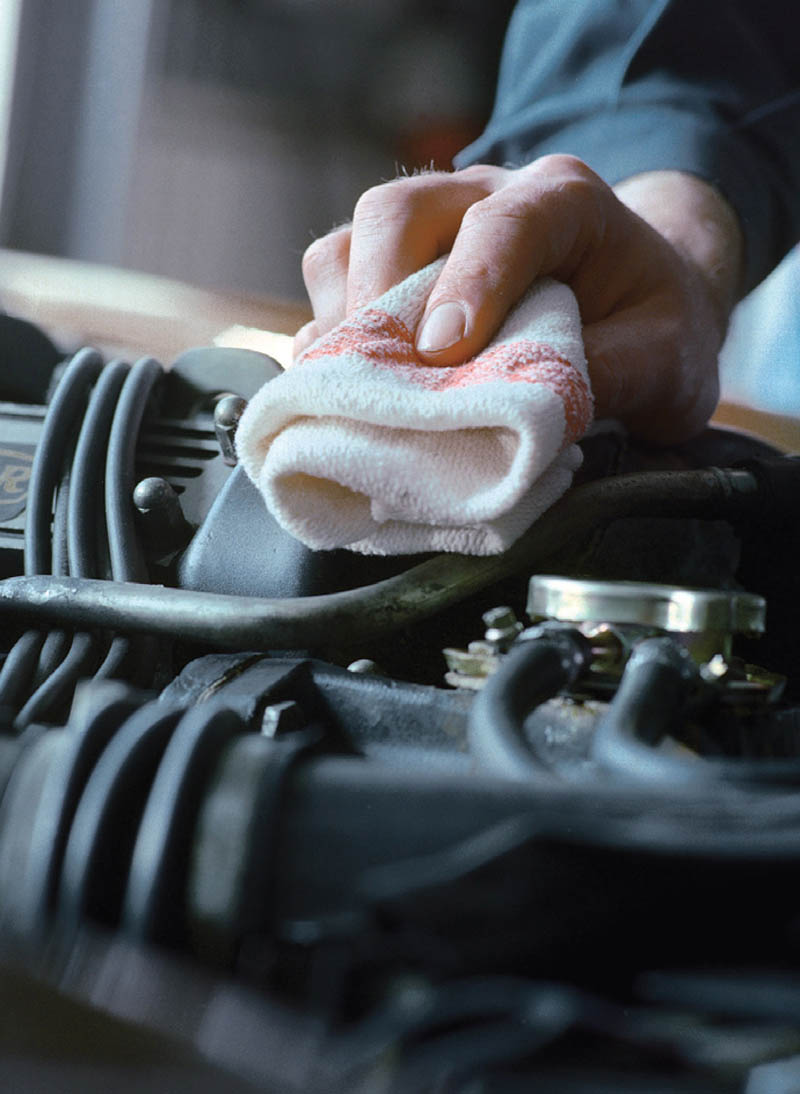
Rags will often be too dirty for washing to be effective and must be disposed of. It is worth noting, then, that oily rags – together with used granules and absorbent pads – are classed as hazardous materials. The European Commission (EC) states that waste oils (with the exception of edible oils) are “absolute hazardous” entries on the Waste Framework Directive’s List of Waste document. In the UK, the Environmental Protection Act 1990, the Special Waste Regulations Act 1996 and the Control of Substances Hazardous to Health Act (COSHH), meanwhile, all set-out storage and disposal procedures for such hazardous materials.
As a result of this legislation, garage owners have a duty of care to ensure all waste engine oils and solvents are stored and disposed of correctly. Failure to do so can result in large fines and prison sentences.
The solution
Spillages in garages and workshops must be cleaned-up quickly to minimise the chances of accidents. The cleaning process can be long-winded, and the resulting residues and dirty rags must be dealt with appropriately in order to comply with local, national and international regulations—a significant and potentially costly responsibility.
Purpose-designed absorbent mats, such as MEWA’s Multitex, offer a simple and efficient way to keep the workplace and floor free from hazardous fluids. The mats are designed so that fluid is transported immediately from their exterior to their absorbent, inner cores, meaning that their surfaces remain relatively dry. A Multitex mat can absorb up to three litres of fluid before needing to be replaced, eliminating the need for rags, sand, granules and plastic tubs.
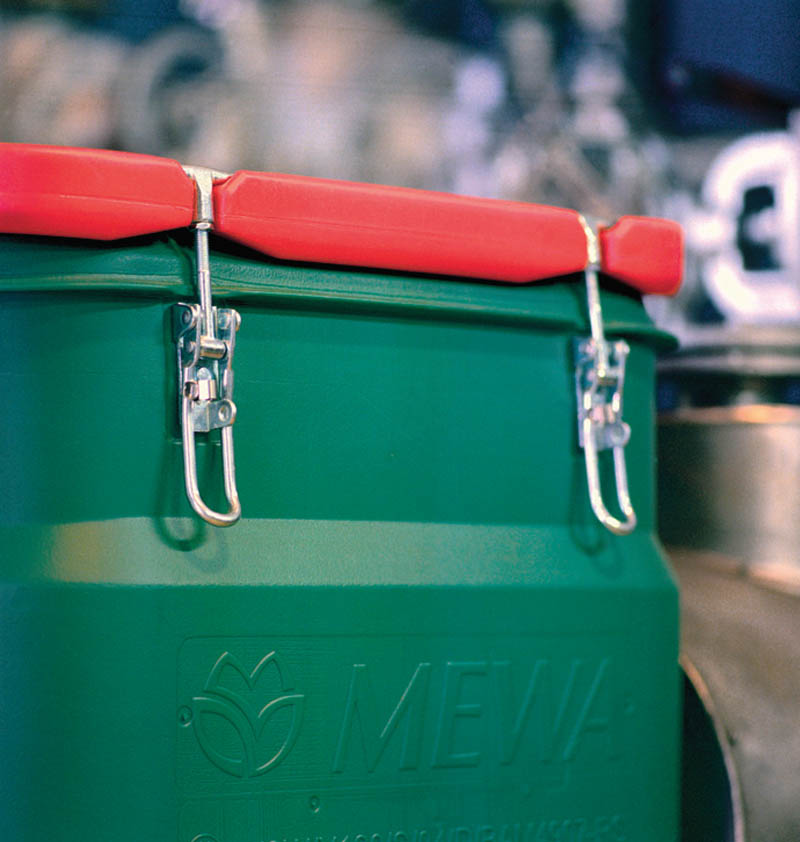
Multitex absorbent mats are part of MEWA’s reusable service offering. Used mats are collected by the company, washed using an environmentally friendly method, and returned, clean and ready for use again. MEWA has also developed a container, SaCon, for the safe storage of the mats prior to their collection. A clean SaCon is returned with each fresh batch of Multitex mats.
Any workshop or garage will know just how difficult it can be to effectively clean-up spillages, no matter how minor, and the legal and environmental responsibilities associated with the disposal of such potentially hazardous waste can be time-consuming and expensive to fulfil. As such, service-based contracts, such as that offered by MEWA, represent a highly attractive alternative.


